Detects-Harmful-Bacteria-in-Whey-Protein
Whey is a natural byproduct of milk, produced during cheese manufacturing. Although primarily composed of water, whey is highly nutritious and widely used as an ingredient or supplement in various foods, including sports nutrition products, baked goods, seasonings, and flavors. Given its broad applications, whey protein is frequently tested for bacterial contamination.
Recently, a major cheese manufacturer approached Hygiena with a challenge: they needed a rapid and accurate method to detect and differentiate potentially pathogenic bacteria in their whey protein concentrate (WPC). In response, Hygiena’s Applications scientists designed a validation study to screen WPC for Salmonella and Listeria species using the BAX® System Real-Time PCR Assays alongside FDA reference methods.
To carry out the study, scientists inoculated WPC 80 (% protein) samples with low levels of Salmonella Typhimurium or Listeria ivanovii. After enrichment, the samples were simultaneously analyzed using both the BAX® System and the reference method. The performance of these methods was then compared to evaluate their equivalency in detecting pathogens.

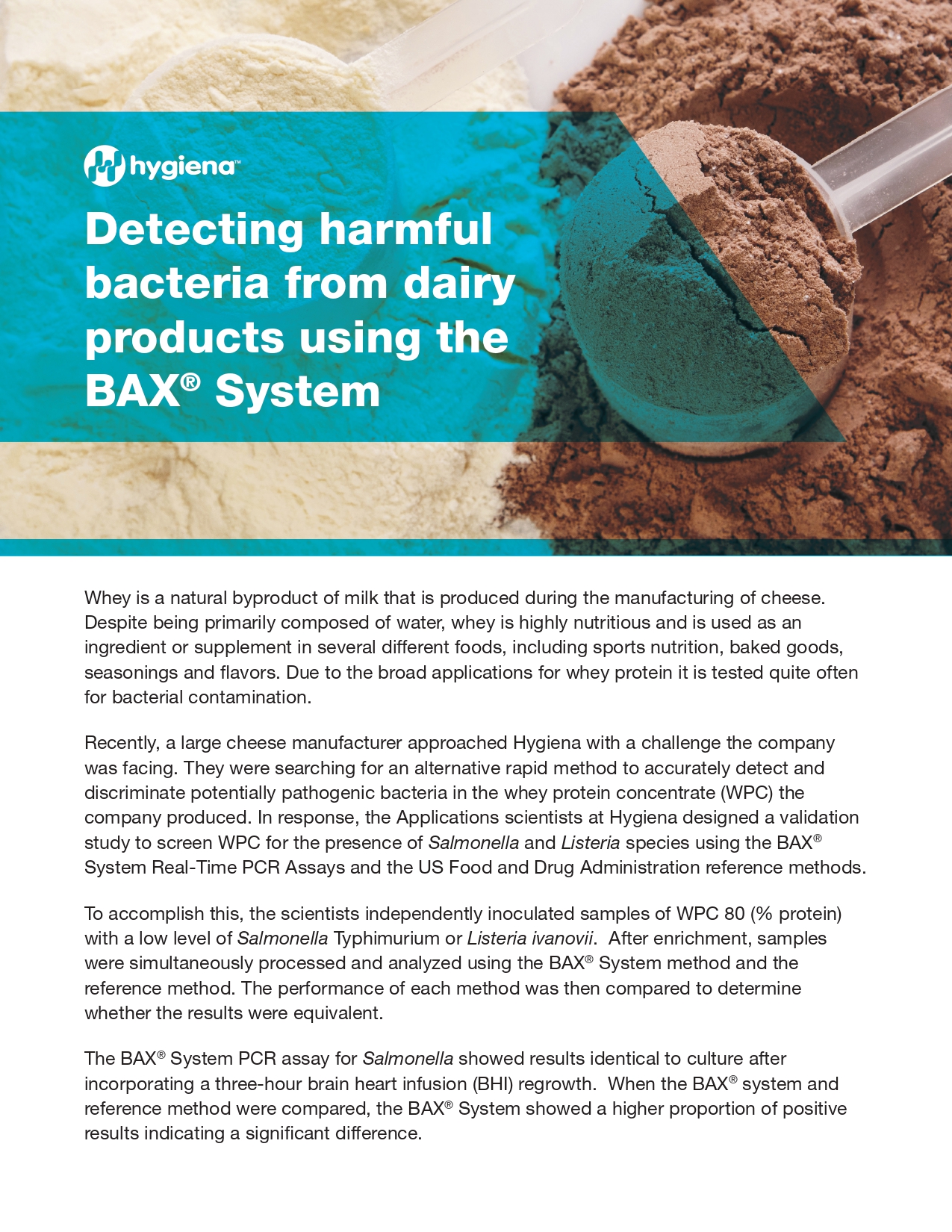
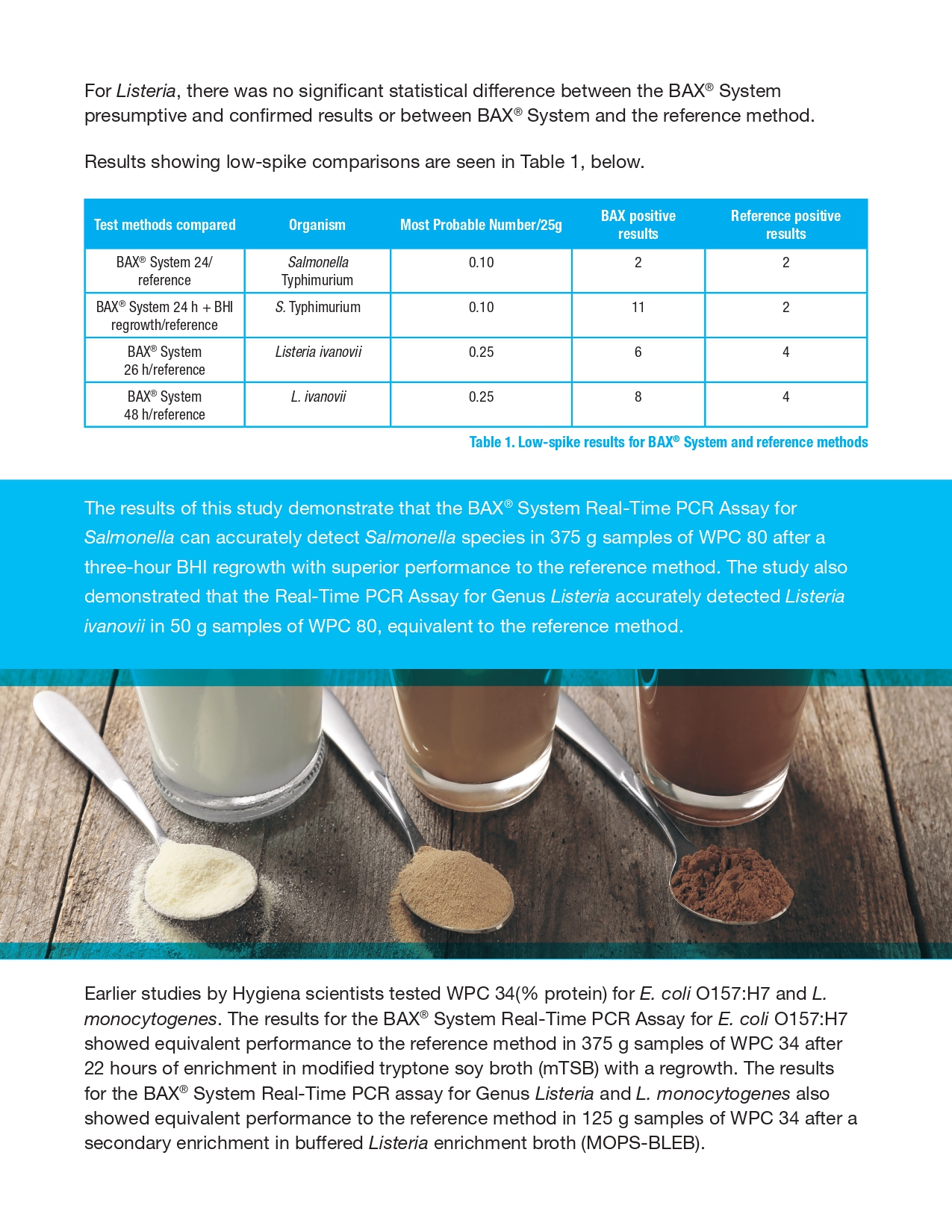
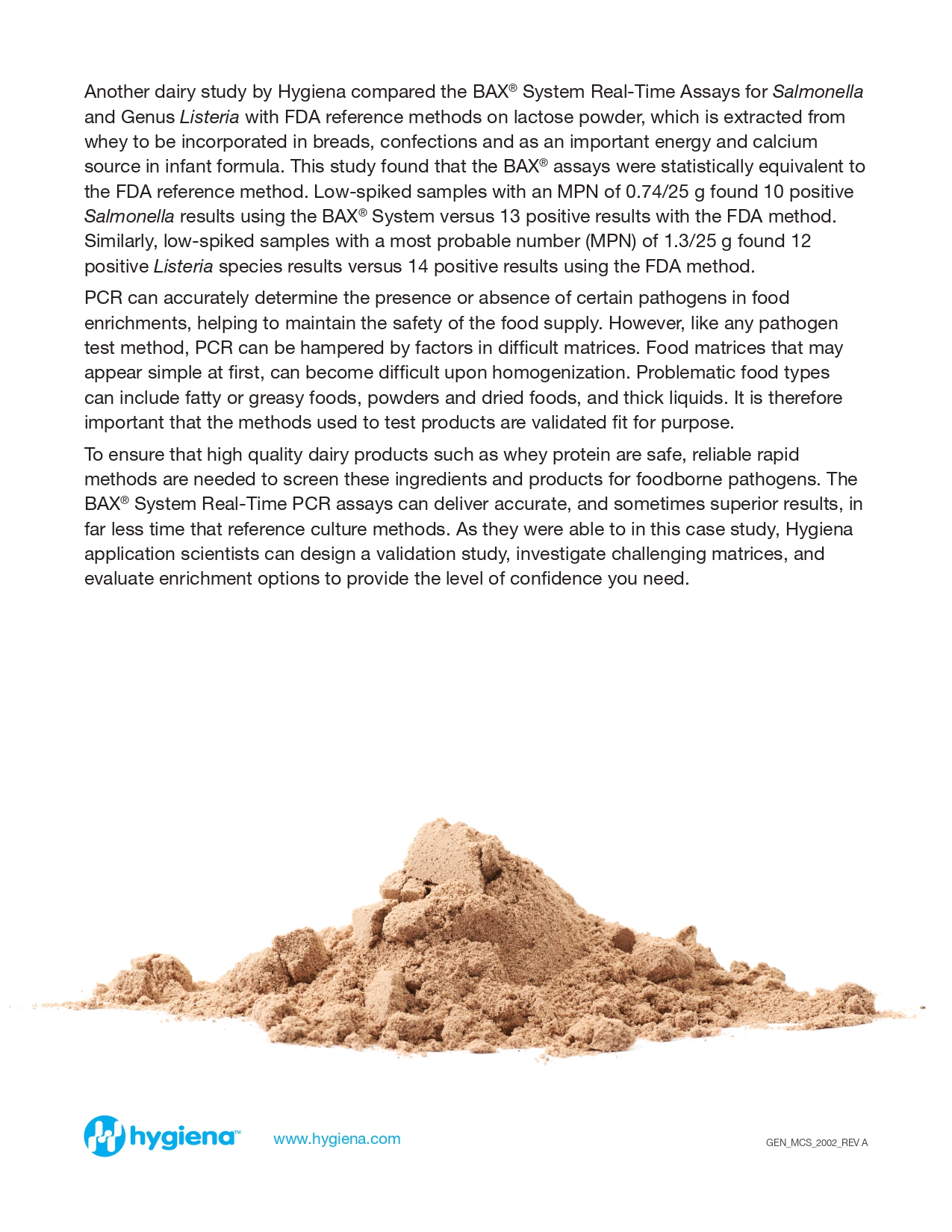
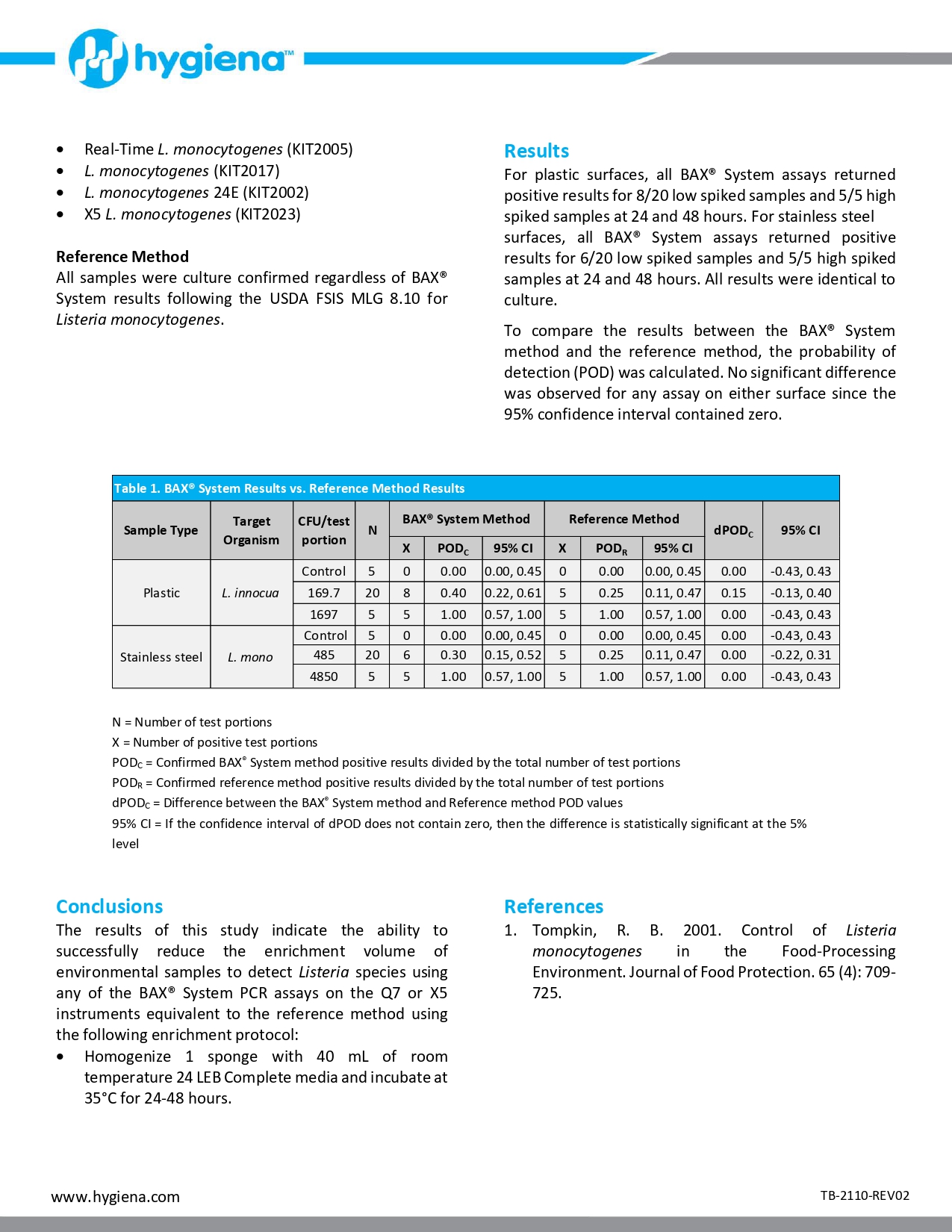
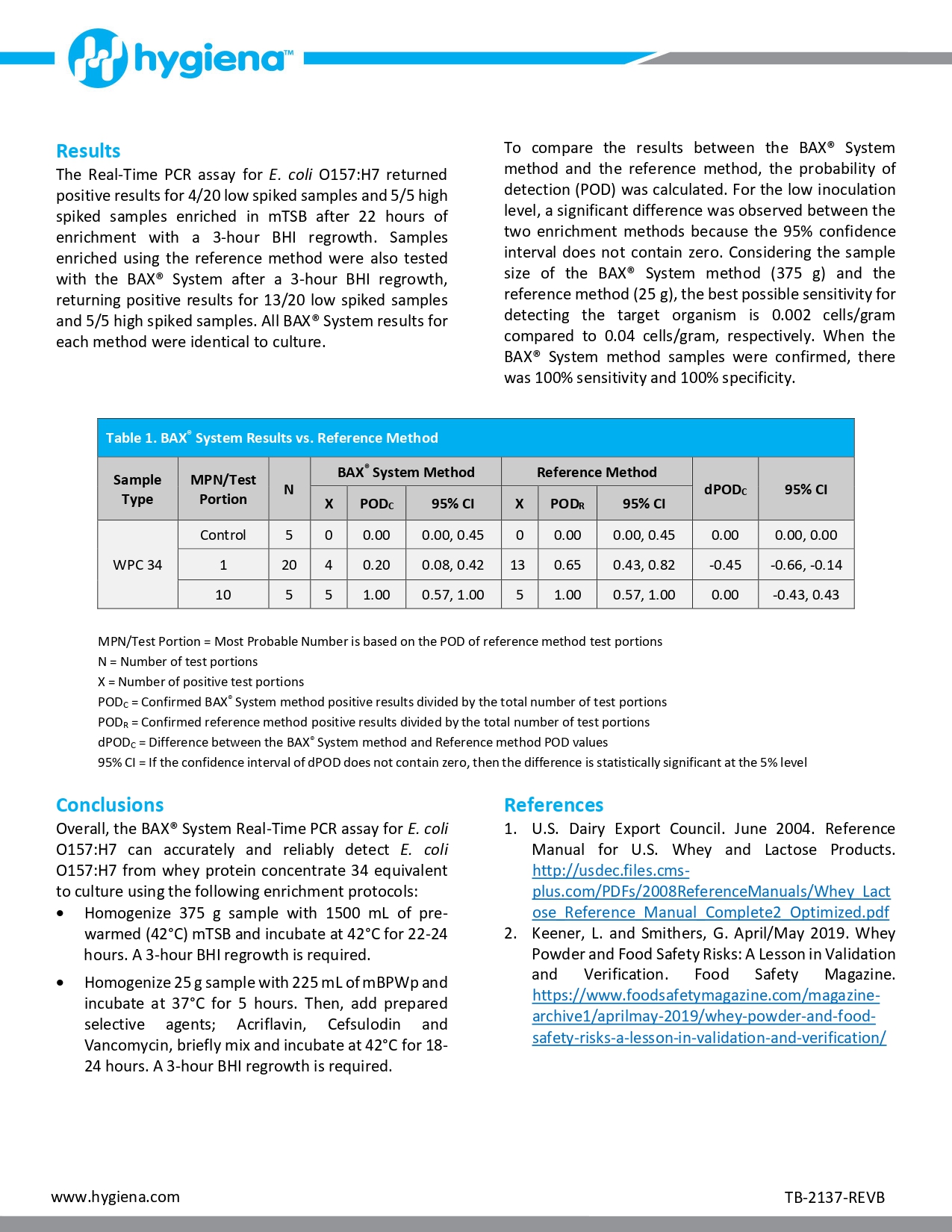
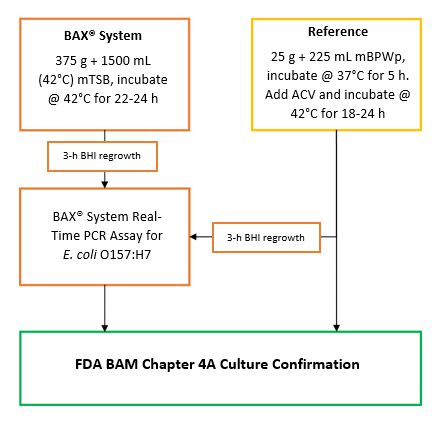
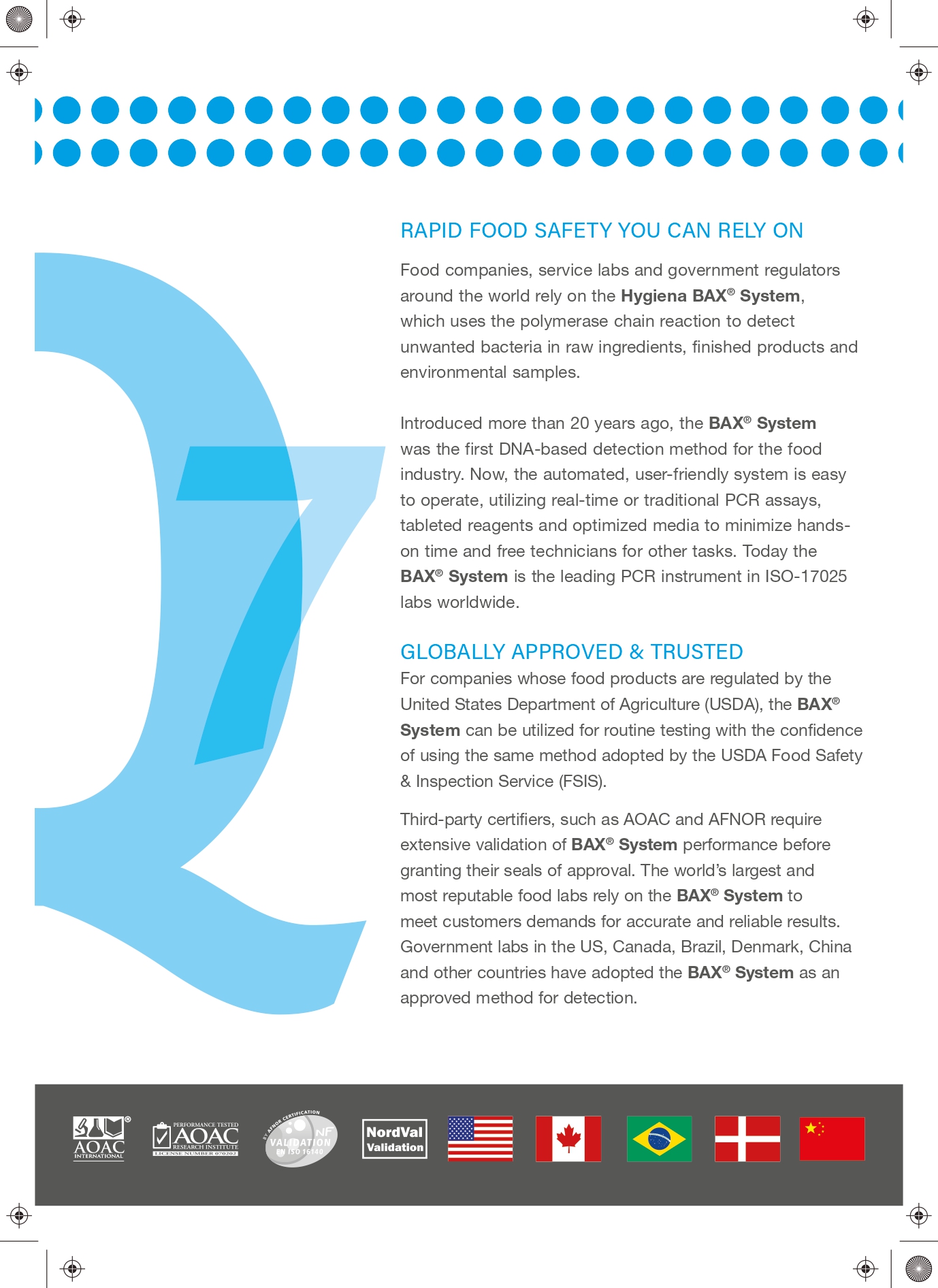
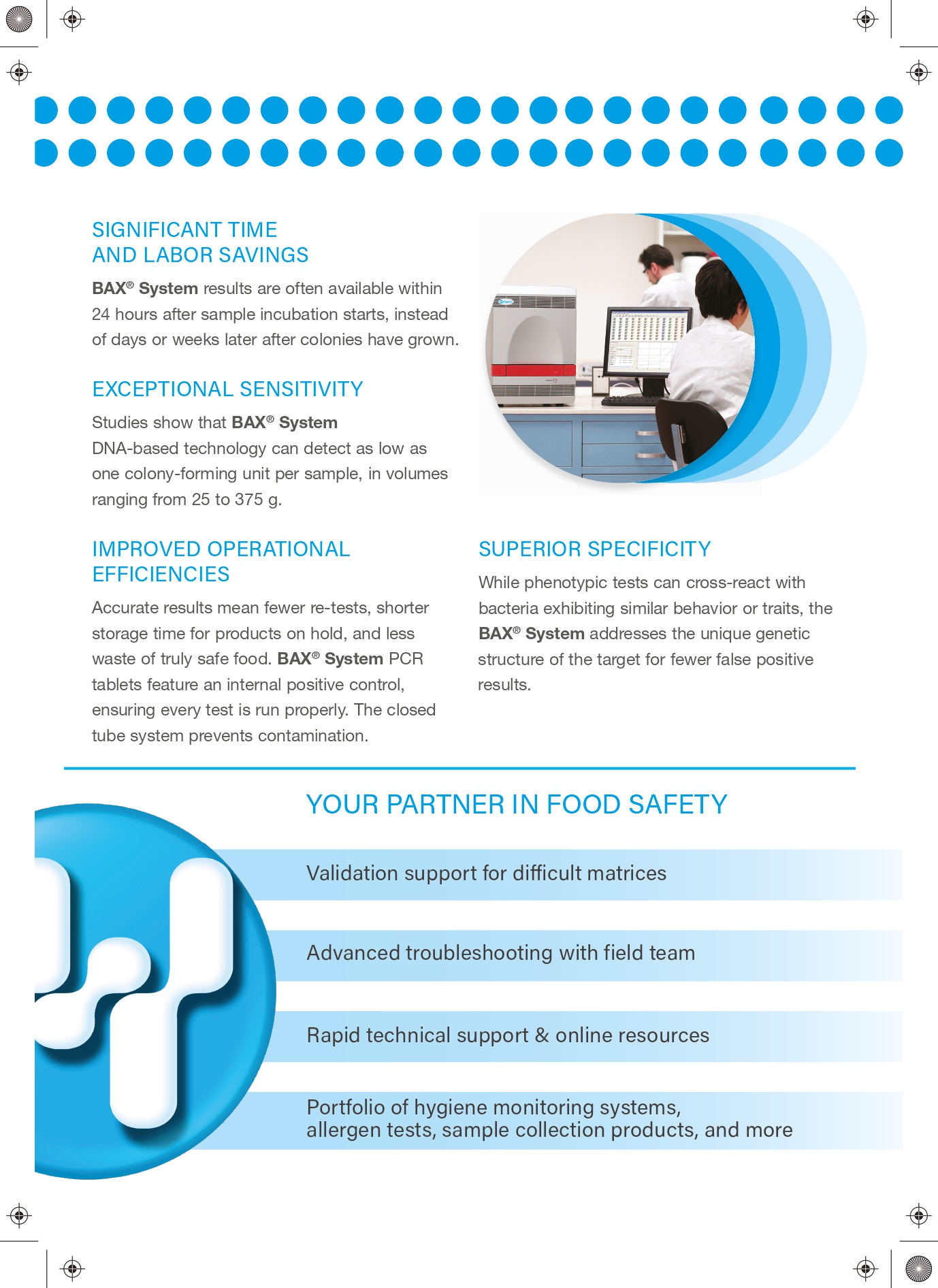
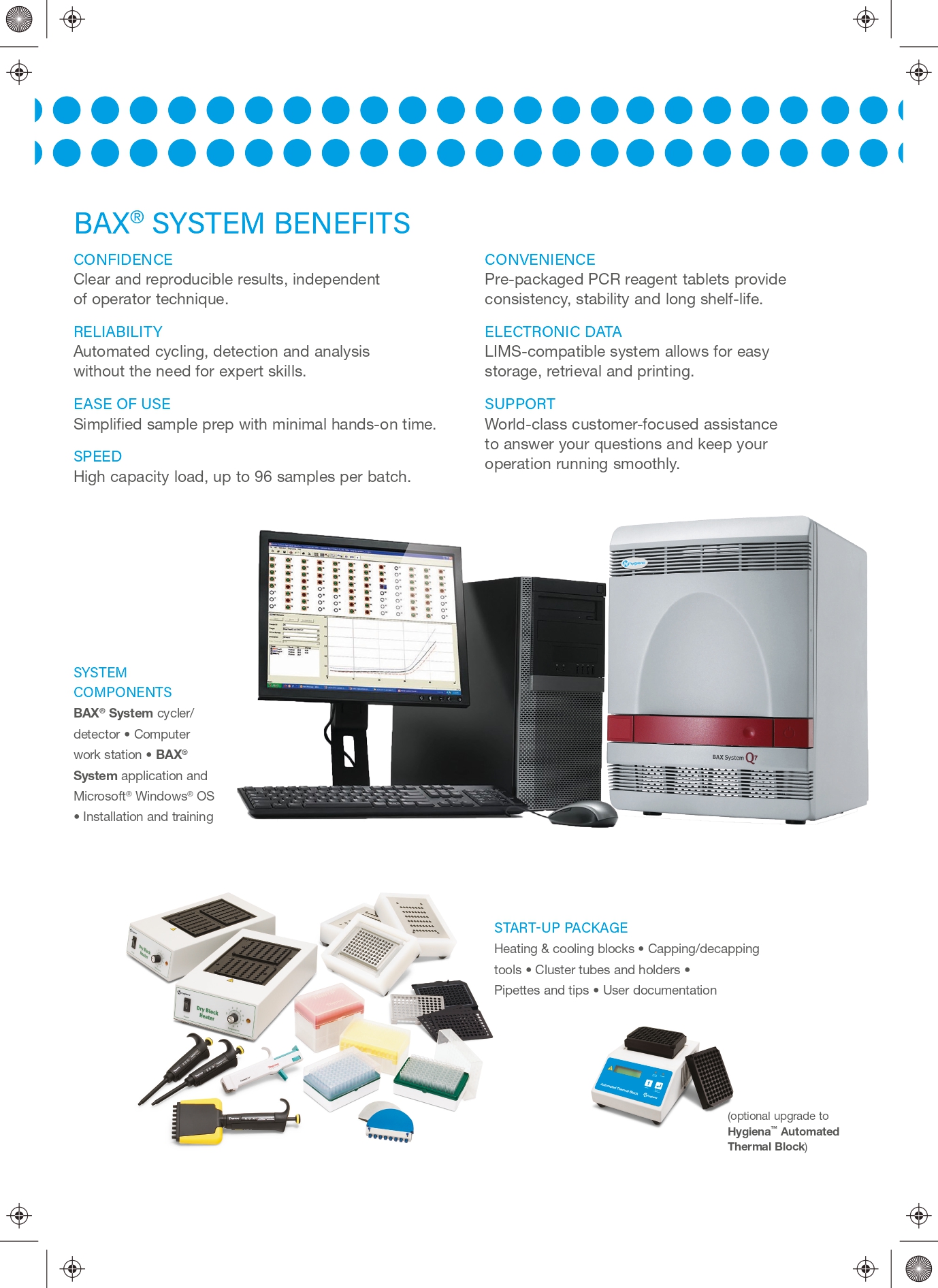
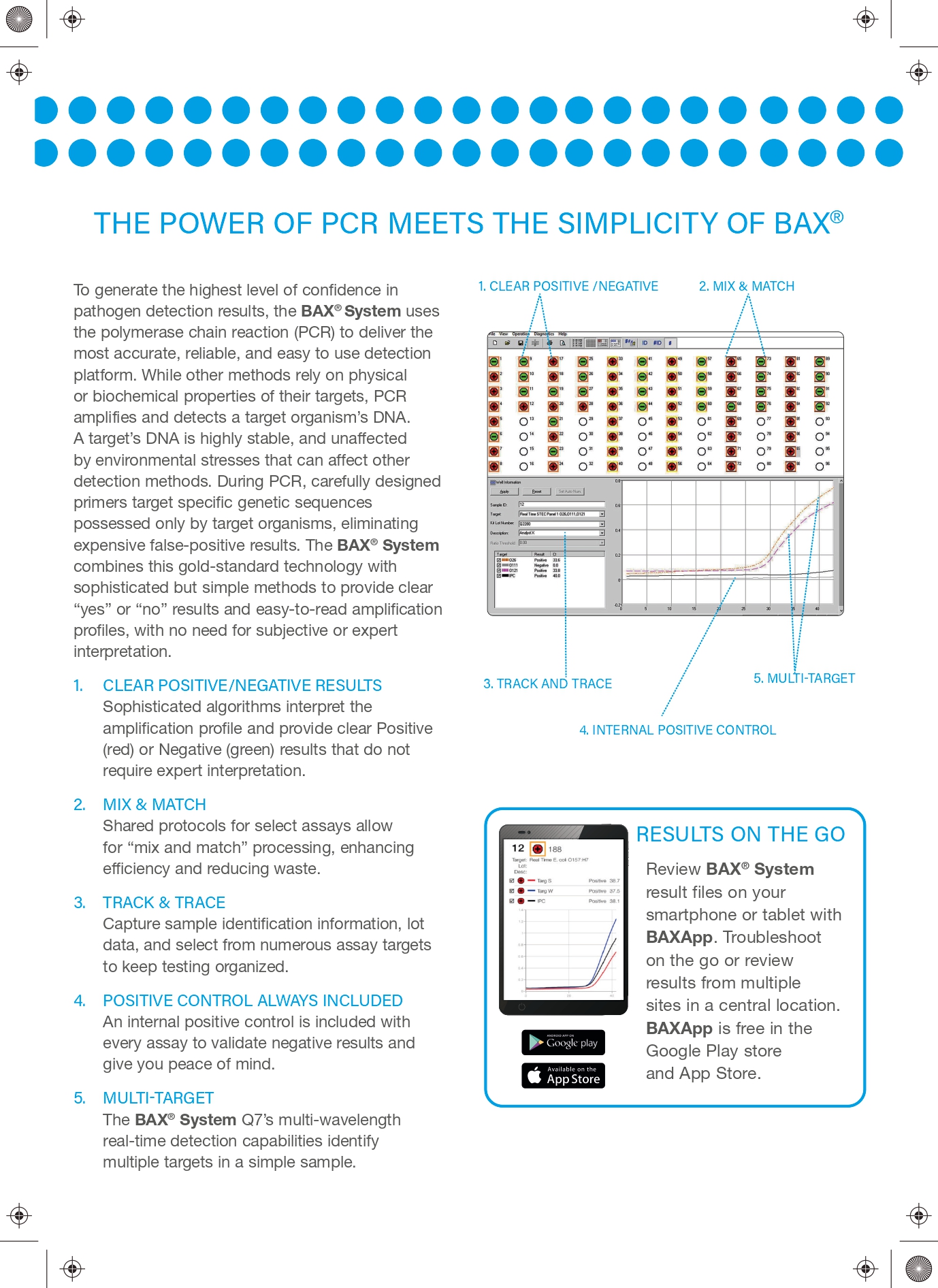
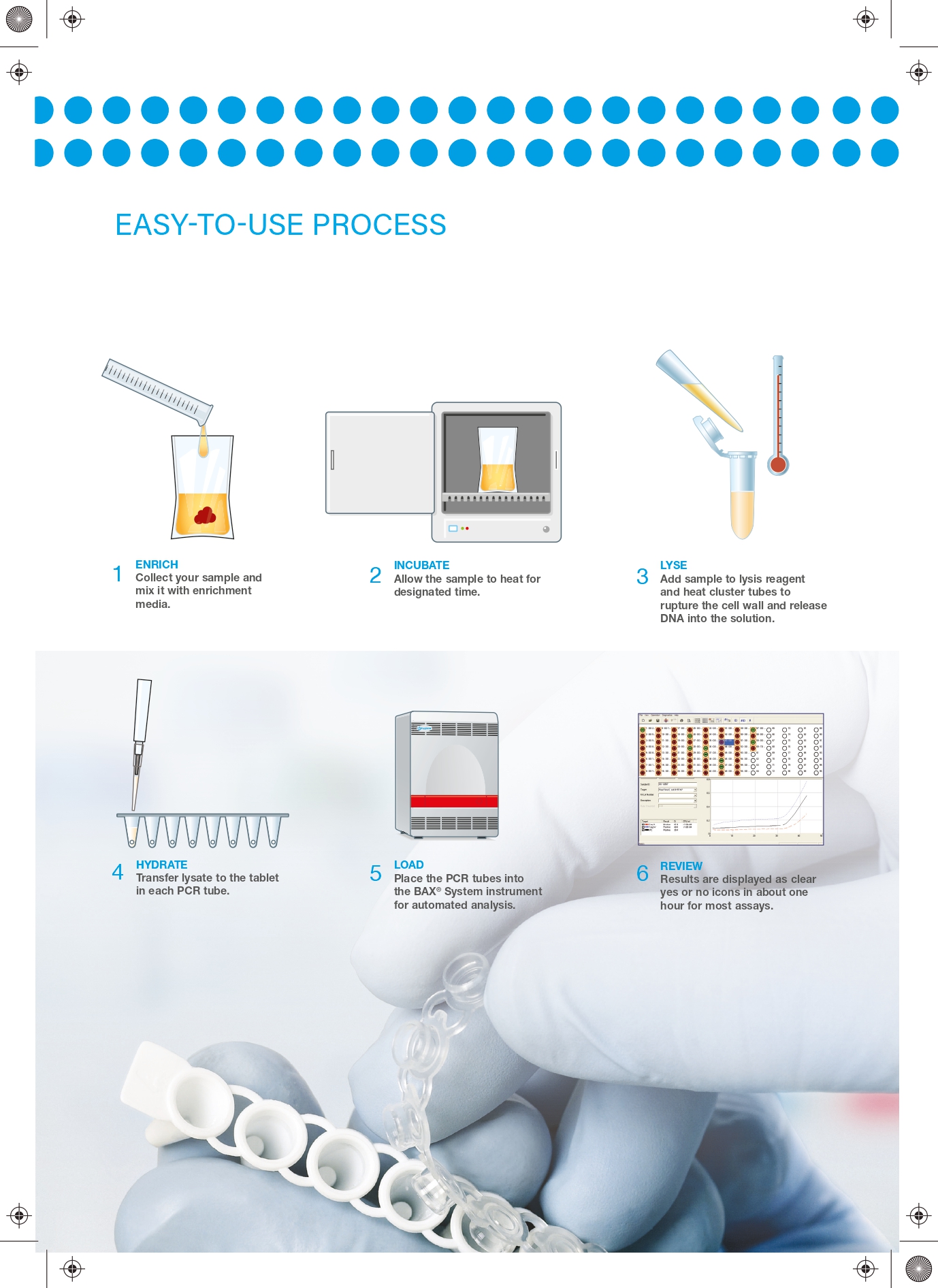
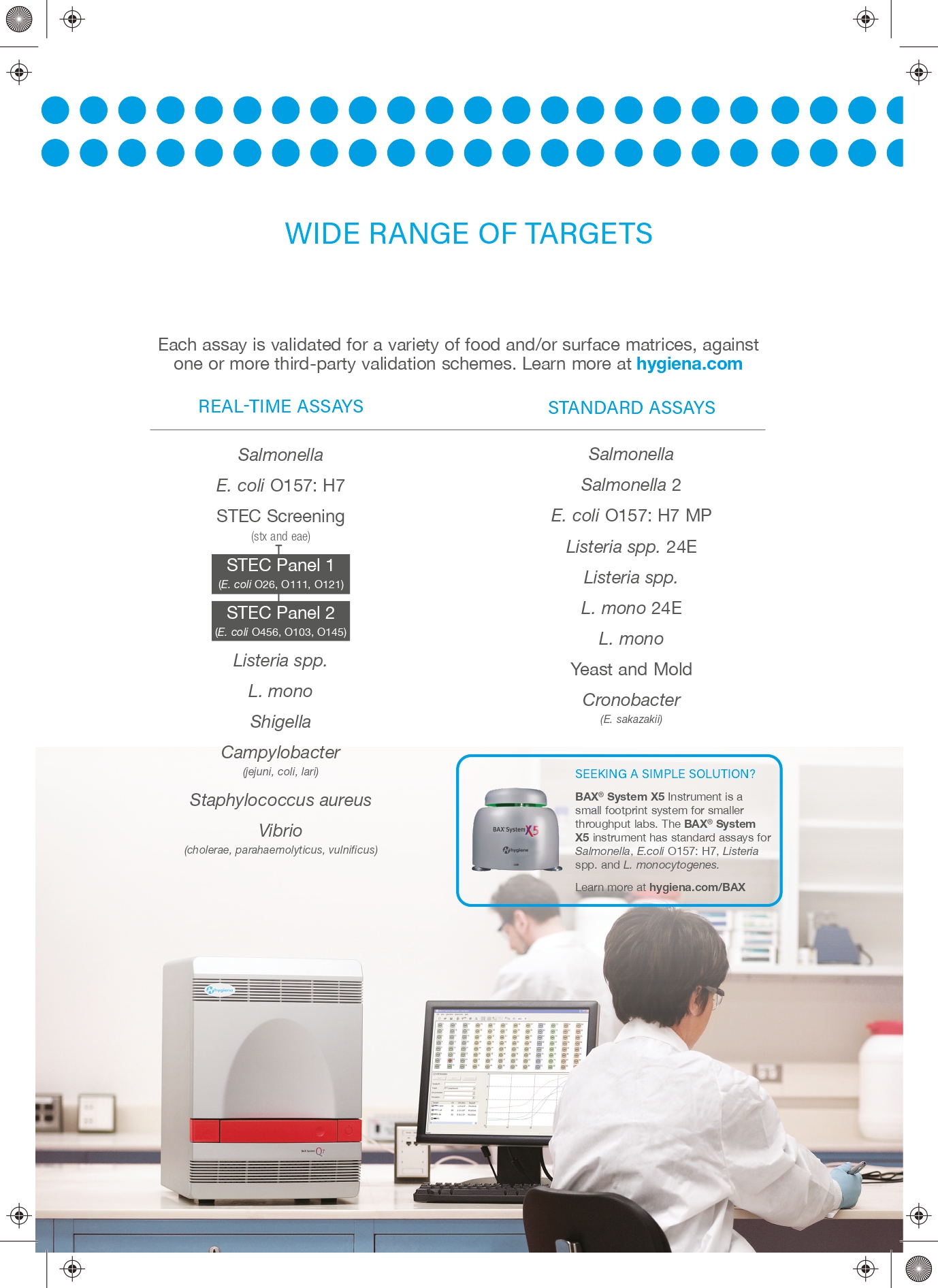
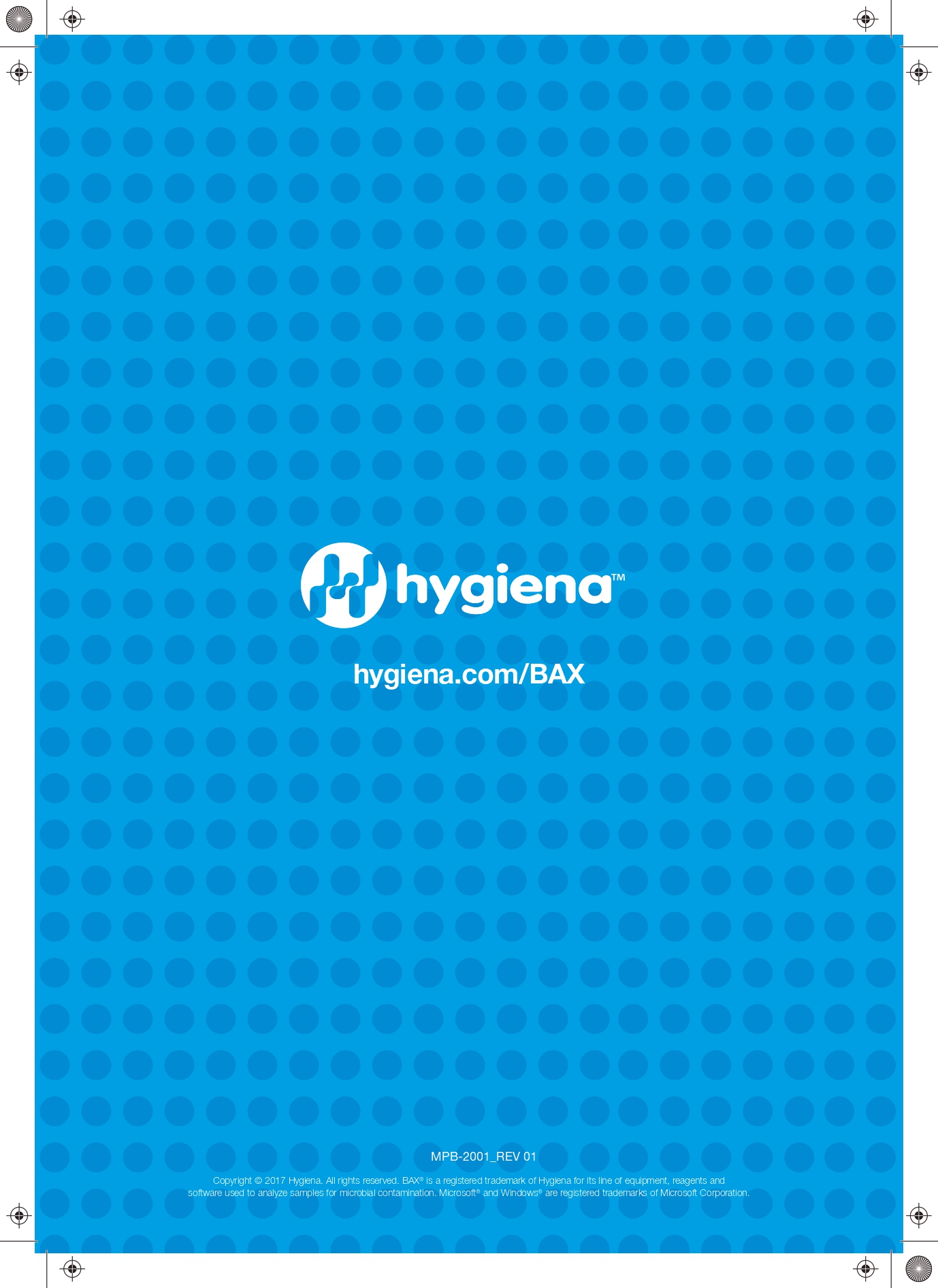


Reviews
There are no reviews yet.